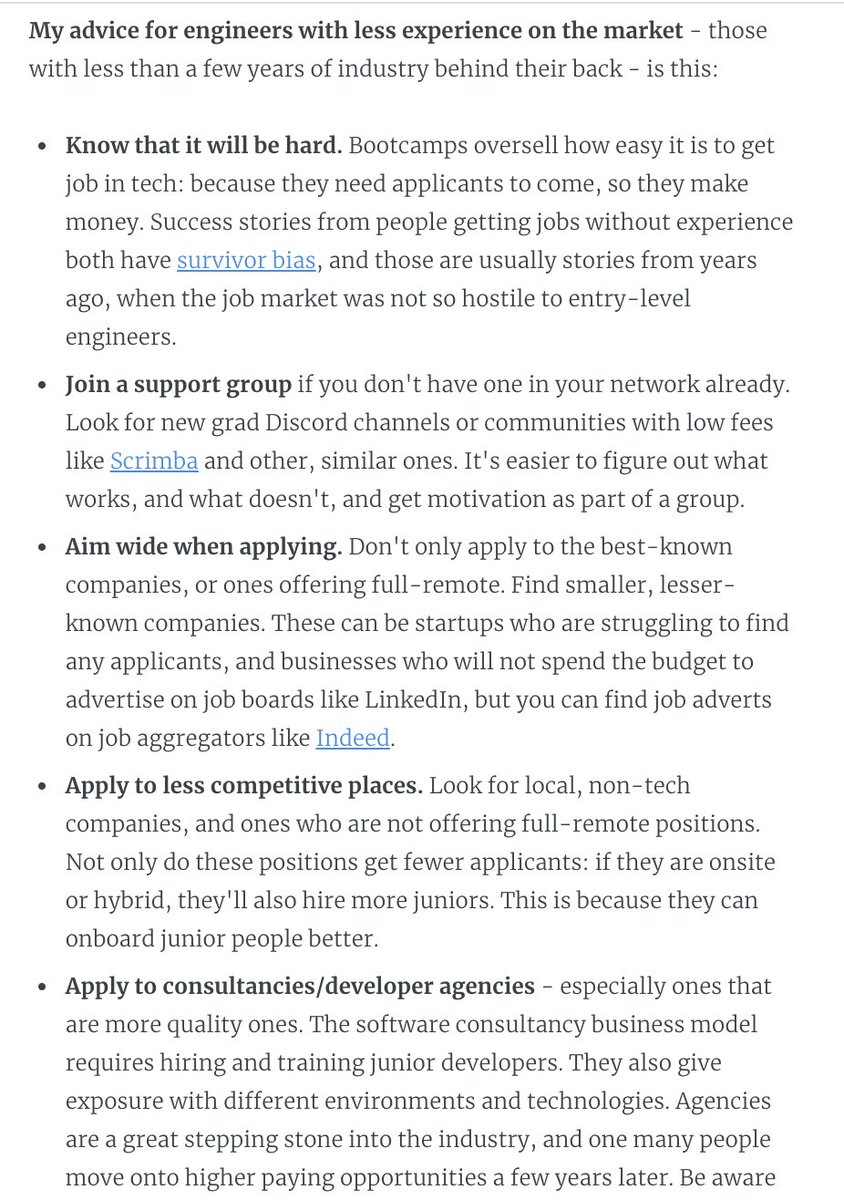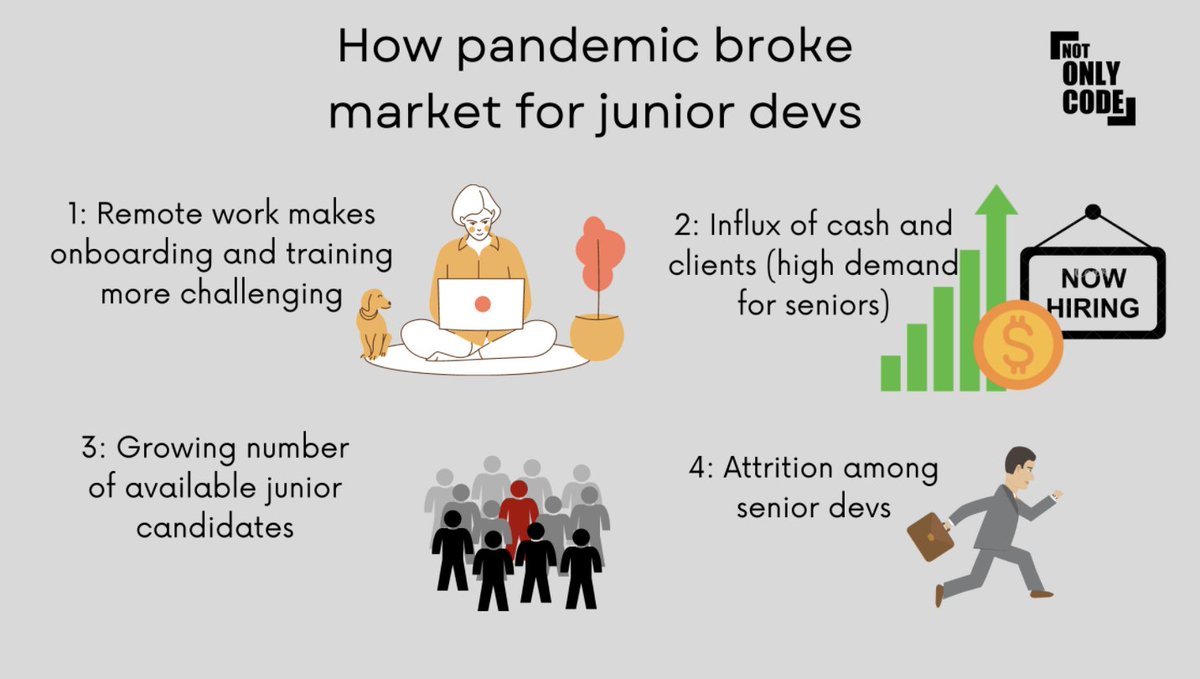
The tech job market has never been more polarized:
Demand for senior tech workers has never been higher, compensation is hitting all-time highs, globally.
New grad and junior folks have never had such a hard time getting that first job.
A thread on what's happening and why:
Demand for senior tech workers has never been higher, compensation is hitting all-time highs, globally.
New grad and junior folks have never had such a hard time getting that first job.
A thread on what's happening and why:
1. The job market is on fire for people with experience.
COVID was the trigger, but remote is no the only reason. There's around 6 different root causes all hitting at the same time.
The result? In 12 months, compensation for senior engineers and eng managers is up ~30%.
COVID was the trigger, but remote is no the only reason. There's around 6 different root causes all hitting at the same time.
The result? In 12 months, compensation for senior engineers and eng managers is up ~30%.

2. All of the market is moving up. In the US, senior engineers are offered ~$500K/yr at the top of the market. In UK, seniors can get ~£200K/yr, in EU ~€175K/yr. Working full remote, $150-200K/yr is possible, globally with top-of-market startups.
https://twitter.com/GergelyOrosz/status/1469012276774678530?s=20
2. (Cont'd) The telling part is just how much the US market has heated up, and all of this is spilling over to the rest of the world.
$100K/yr working remote in LatAm, India or Portugal as a senior dev is not as uncommon as it was just two years ago.
$100K/yr working remote in LatAm, India or Portugal as a senior dev is not as uncommon as it was just two years ago.
https://twitter.com/danluu/status/1472709170440785922?s=20
3. Getting these positions is becoming harder, though. As word gets out, the competition is increasing, and high-paying companies are putting more hoops to jump in place with interviews.
Here's an article many people shared help them prep: blog.pragmaticengineer.com/preparing-for-…
Here's an article many people shared help them prep: blog.pragmaticengineer.com/preparing-for-…
4. Let's talk about the bad: junior engineers, bootcamp grads and people with little to no experience.
It's never been harder to get positions. My take on why this is, and my advice on how to maximise chances of landing that first job: blog.pragmaticengineer.com/advice-for-tec…
It will be hard.



It's never been harder to get positions. My take on why this is, and my advice on how to maximise chances of landing that first job: blog.pragmaticengineer.com/advice-for-tec…
It will be hard.




4. (Cont'd on juniors). @gregorywitek (worth following!) wrote an opinion piece on why the pandemic broke the job market for juniors, and gives more observations and advice: notonlycode.org/nobody-hires-j…
His advice is not just for junior engineers, but managers and senior engineers.



His advice is not just for junior engineers, but managers and senior engineers.




5. How long will this market last?
At least until the middle of 2022, likely beyond. I cover updates on the global software engineering market in my newsletter, sign up here: newsletter.pragmaticengineer.com
Read🔒updates here: newsletter.pragmaticengineer.com/p/perfect-stor… (relevant for hiring managers)
At least until the middle of 2022, likely beyond. I cover updates on the global software engineering market in my newsletter, sign up here: newsletter.pragmaticengineer.com
Read🔒updates here: newsletter.pragmaticengineer.com/p/perfect-stor… (relevant for hiring managers)
• • •
Missing some Tweet in this thread? You can try to
force a refresh



